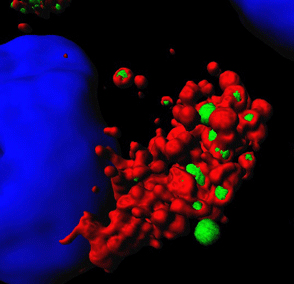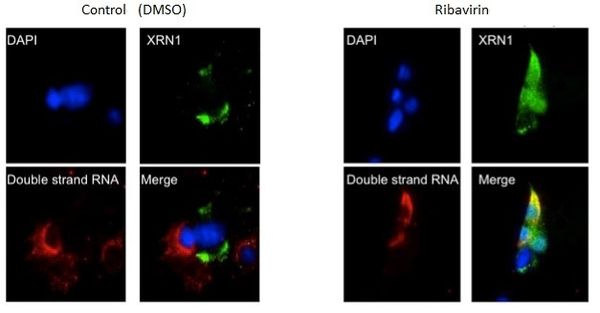

PhD, MCU,
patrice.bruscella@inserm.fr
The key molecules of this research project are broad-spectrum antiviral agents: laboratory-developed small-molecule cyclophilin inhibitors, and ribavirin, which accelerates the elimination of viral RNA in HCV-infected patients treated with other antivirals, a property that may apply to other viral infections.
Our group is interested in the characterization of molecules that can promote the use of the cellular RNA degradation machinery against viral RNA. When an RNA virus infects a cell, its genome may be the target of a set of enzymes that can degrade it. Our group is interested in the role of exoribonucleases of the XRN family (5'-RNase) and exosomes (3'-RNase) and endonucleases in viral infections.
XRN1 has been implicated in the degradation of HCV (Li Y, et al., MS Proc Natl Acad Sci U S 2013 Jan 29; 110 (5): 1881-6.). Our objectives are to evaluate the role of other RNases in the degradation of viral RNAs and study the ability of broad-spectrum antiviral molecules to potentiate the action of these enzymes.

Cell localization of XRN1 and HCV RNA (double-strand RNA) with and without Ribavirin treatment
New hepatitis C therapies: the toolbox, strategies, and challenges.
Gastroenterology 2014
Is HCV infection a neurologic disorder ?
Gastroenterology 2012
Systematic review: anti-viral therapy of recurrent hepatitis C after liver transplantation.
Aliment Pharmacol Ther. 2011
A poxvirus vaccine is safe, induces T-cell responses, and decreases viral load in patients with chronic hepatitis C.
Gastroenterology 2011
Liver transplantation as a model to better understand the cell entry of hepatitis C virus.
J Hepatol. 2011
Antiviral action of ribavirin in chronic hepatitis C.
Gastroenterology 2004